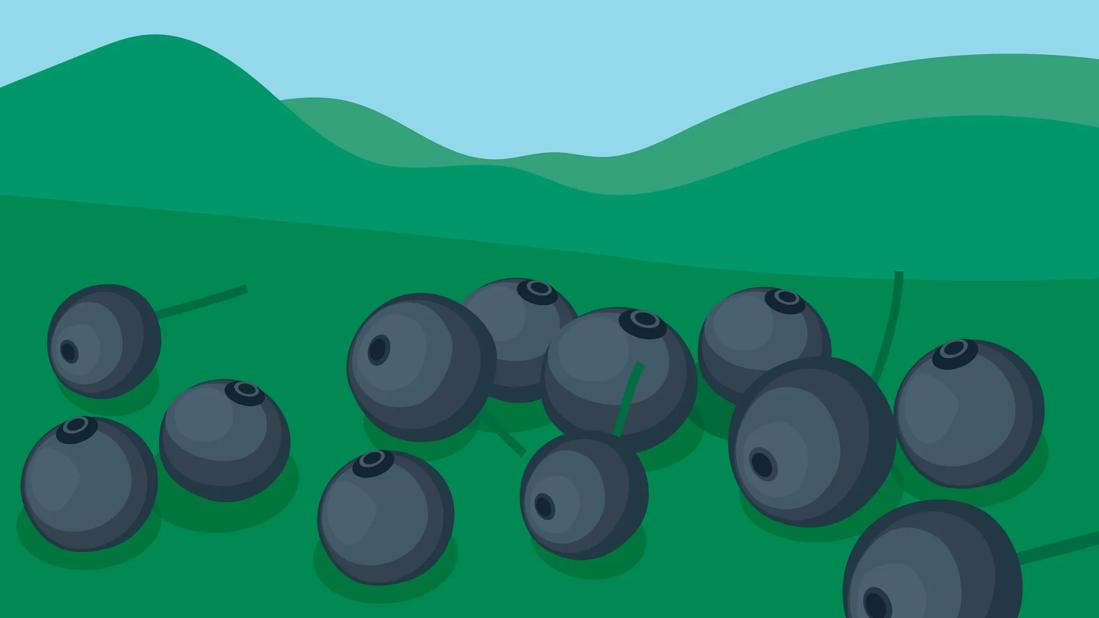Black currants are small but mighty — rich in nutrients that can boost heart health, fight inflammation and protect your eyes

Image content: This image is available to view online.
View image online (https://assets.clevelandclinic.org/transform/4bf8ccd5-47d6-45ef-be3a-6ea165f3ef57/black-currants-481931333)
Black currants on green
Black currants may be one of the healthiest berries you’re not eating. These small, dark fruits are packed with vitamin C, fiber and antioxidants that support your heart, skin, eyes and more.
Advertisement
Cleveland Clinic is a non-profit academic medical center. Advertising on our site helps support our mission. We do not endorse non-Cleveland Clinic products or services. Policy
Looking to mix up your fruit routine — and give your body a nutritional boost? Julia Zumpano, RD, LD, explains why black currants are worth a try.
Black currants (Ribes nigrum, also called blackcurrants or cassis) are dark purple berries that grow on shrubs. They look like very dark blueberries. While there are also red and white varieties, black currants are the most popular.
Once banned in the U.S. for spreading white pine blister rust, a disease that threatened the timber industry, black currants are now making a comeback — especially in the Northeast and Pacific Northwest — as planting restrictions have eased.
Ripe berries taste bold and sweet, while unripe ones are more tart. Each one contains a tiny, edible seed.
A cup of black currants has about 63 calories and these healthy nutrients:
Antioxidants and nutrients in black currants protect your health in many ways.
Black currants are loaded with antioxidants, including phytonutrients and polyphenols. They get their deep color from anthocyanins, a flavonoid that also has antioxidant benefits.
Advertisement
“Antioxidants fight free radicals, molecules that can damage cells and lead to inflammation, cancer and other diseases,” Zumpano explains.
Studies show anthocyanins may improve cholesterol and triglyceride levels, helping lower your risk of severe heart disease.
One cup of black currants has more than twice the vitamin C of a large orange. “This water-soluble vitamin passes quickly through your body, so it’s important to get enough of it every day,” says Zumpano.
Vitamin C helps:
Black currants are a rich source of gamma-linolenic acid (GLA), an omega-6 fatty acid known for its anti-inflammatory effects.
GLA may help:
One study of triathletes found that black currant powder helped reduce lactic acid buildup, leading to faster recovery. Researchers think anthocyanins may improve blood flow and reduce muscle fatigue.
For most people, black currants are a safe and healthy choice. But they may not be right for everyone:
Talk to your healthcare provider if you take these medications or have concerns about adding black currants to your diet.
You can eat black currants just like any other berry:
In Europe, black currant is the go-to flavor in many purple candies and drinks — often instead of grape. You might even spot a U.K. black currant soda at your local grocery store.
They’re also the key ingredient in crème de cassis, a dark red French liqueur.
Supplements with black currant seed oil are available, too — but talk to your provider before adding this (or any) supplement to your routine.
“Black currants haven’t been widely available in the U.S., so there’s limited research on supplement safety,” clarifies Zumpano. “You’ll get more health benefits from eating fresh fruits and vegetables.”
Advertisement
Whether you stir them into yogurt or bake them into muffins, black currants are a flavorful way to boost your nutrition.
“Black currants are a smart pick if you want to shake up your usual fruit routine,” encourages Zumpano. “They’re bold, tasty and packed with benefits.”
Advertisement

Sign up for our Health Essentials emails for expert guidance on nutrition, fitness, sleep, skin care and more.
Learn more about our editorial process.
Advertisement
Pick bell peppers to help fight cancer, memory decline and joint pain
The tropical fruit is a good source of antioxidants and vitamin C
High amounts of cholesterol and saturated fat in red meat may be linked to heart disease
The leaves and pods from this tree are rich in essential nutrients
This starchy root vegetable is a staple in many global cuisines — but it has to be prepared correctly, or it can cause serious concerns
These delicate green sprouts can give you an extra dose of vitamin K and other nutrients — but they’re not safe for everyone
Edamame, lentils and chicken breast are good sources of protein
Eating this root vegetable can help support your eye, heart and brain health
Although it could be used as a moisturizer, this new trend is not recommended
Communicating clear limits helps protect your time, energy and emotional well-being
High cholesterol can be genetic, but testing and treatment can lower your heart disease risk